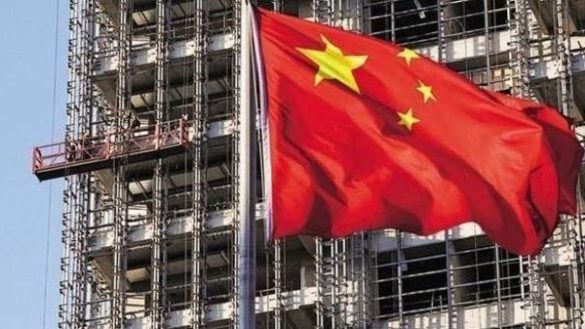
Opinion | China’s 100-year marathon to rule the world and reshape it
When, at the recent summit between Prime Minister Narendra Modi and Chinese President Xi Jinping, Xi proposed a 100-year plan to rejuvenate China-India relations, I remembered a book I read two years ago, The Hundred-Year Marathon (HYM) by Michael Pillsbury, a leading American China expert. Pillsbury has spent more than 50 years studying China and has worked with the US government, intelligence agencies and think tanks. For decades, he pushed pro-China policies that helped the country rise to be a superpower. Today, he admits that, like many others, from academics to lawmakers to presidents from Richard Nixon to Barack Obama, he was fooled by China. His account of how the US continuously (and often secretly) helped China, and how China kept betraying it, is stunning. And, of course, the most interesting part is how a dove turned into a hawk as he dealt more and more closely with China.
Based on immense personal experience (including covert US-China negotiations and interviewing defectors), study of material from ancient to modern texts—some hardly available outside China—and with unprecedented access to Chinese strategists, HYM is an eye-opener. The book presents three central theses. One, China started on a 100-year marathon decades ago to become the global hegemon, with an aim to reshape the world according to Chinese values (which don’t include democracy). Its target is 2049, centenary of Mao Zedong’s seizing power. Two, Chinese leaders draw their strategies from their ancient texts and history, especially the Warring States period, a two-and-a-half-century stretch that began around 475 BCE and ended with unification under the Qin dynasty (the word China comes from Qin). Three, unless the world wakes up, China will complete the marathon before time.
An additional twist is the complexity and ambiguity of the Chinese language. The actual meaning of a word often depends on tone, context and intent. Thus, translations are often misinterpretations. For instance, the term da tong, which Chinese leaders use regularly at the United Nations and other international fora as the Chinese goal, is usually translated as “an era of harmony”. But, says Pillsbury, a better translation would be “an era of unipolar dominance”.
When Xi became general secretary of the Communist Party in 2012, in his maiden speech, he used a phrase no Chinese leader had ever used publicly, qiang zhongguo meng—“strong nation dream”. Till then, such emotion-laden statements (“Make America great again!”) were seen as a non-Chinese, Western trait. Also, China had never made any ambitious proclamations before the world. But the “Chinese dream” is now an official goal, to be fulfilled by 2049, when China will become “a fully developed nation”. But it could actually imply world domination—economic, military, cultural. Xi obviously thinks shi is with him.
Shi—a word not directly translatable into English—lies at the heart of China’s strategy. The concept is best described as “the alignment of forces”, which a skilled strategist can exploit to ensure victory over a superior opponent. The most able strategist can use shi to turn events to his will and, according to Sun Tzu’s The Art Of War, get enemies to act in ways that work to his advantage. All Chinese leaders, from time immemorial, have believed in shi.
Shi had been with Mao when he reached out secretly to US President Nixon in 1969 to offer China as an ally against the Soviets. Deng Xiaoping had shi with him on his charm visit to the US in 1979, triggering off an economic revolution funded by the West, but entirely on China’s terms (exactly as envisioned by Sun Tzu). The West kept helping China’s rise, deluding itself that it would become more democratic, while in reality it became more authoritarian, and Chinese textbooks, museums and domestic propaganda kept painting the West as imperialist thugs.
All the winning principles distilled from the Warring States period involve deception, which the Chinese have always seen as the most vital aspect of strategy. The most celebrated military victories in Chinese history are based on deception. Cunning heroes are extremely common in the Chinese narrative arts. (I remember watching a Chinese film on Doordarshan in the 1980s, set in some bygone age, and realizing only towards the end that the conniving cheat, whom I had assumed to be the villain, was the hero.) During the two-year course Pillsbury attended in Taiwan as a PhD student to study Chinese culture, he was taught a proverb intended to sum up Chinese history: “On the outside, be benevolent; on the inside, be ruthless.”
The unexpected problem that the “harmony” dream faces is Donald Trump. In Isaac Asimov’s Foundation series, Hari Seldon had created a “psychohistory” for his people, based on astatistical analysis of mass behaviour, predicting future crises. Everything went as calculated till the appearance of the Mule, who, being a mutant, could not have been probabilistically predicted. Trump is that unknown variable suddenly inserted into China’s strategic equation. But then, shi, as Henry Kissinger noted in his book On China, is “the art of understanding matters in flux”. Pillsbury is now an adviser to Trump.